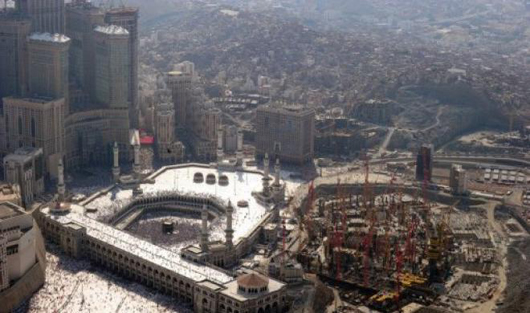 Jul 3: Custodian of the Two Holy Mosques King Abdullah has instructed Grand Mosque authorities to open the newly expanded annex buildings of the Grand Mosque for the use of worshippers during Ramadan.
Jul 3: Custodian of the Two Holy Mosques King Abdullah has instructed Grand Mosque authorities to open the newly expanded annex buildings of the Grand Mosque for the use of worshippers during Ramadan.
A source at the Presidency of the Two Holy Mosques said the king’s directive would provide extra prayer space for more than 625,000 worshippers inside the mosque and its courtyards. The royal gesture would help reduce congestion among worshippers inside and outside the mosque, he added.
The king has also ordered that pilgrims be allowed to make use of the expanded “mataf” (circumambulation area around the House of God) on the ground floor, as well as on the first floor, to accommodate 40,000 pilgrims per hour.
Nearly two million worshippers, including foreign pilgrims, attend taraweeh prayers at the mosque and a large number of them stand on roads leading to the mosque. School vacation in the Arab world has increased crowding in the holy city.
Maj. Gen. Abdul Rahman Al-Qahtani, director of communications, said that more than 1,250 cameras have been set up inside and outside the mosque to monitor the movement of pilgrims and worshippers and ensure their safety. “We monitor pilgrims through 270 TV screens and if we find anything wrong, we inform field officers to take corrective action.”
Yousuf Al-Wabil, vice chairman of the committee of religious consultants, said the presidency would not allow people to hoard space at the Grand Mosque for other people.
“This is a wrongful practice and we want to change this system by spreading awareness and preventing people from practicing it.”





Comments
Add new comment